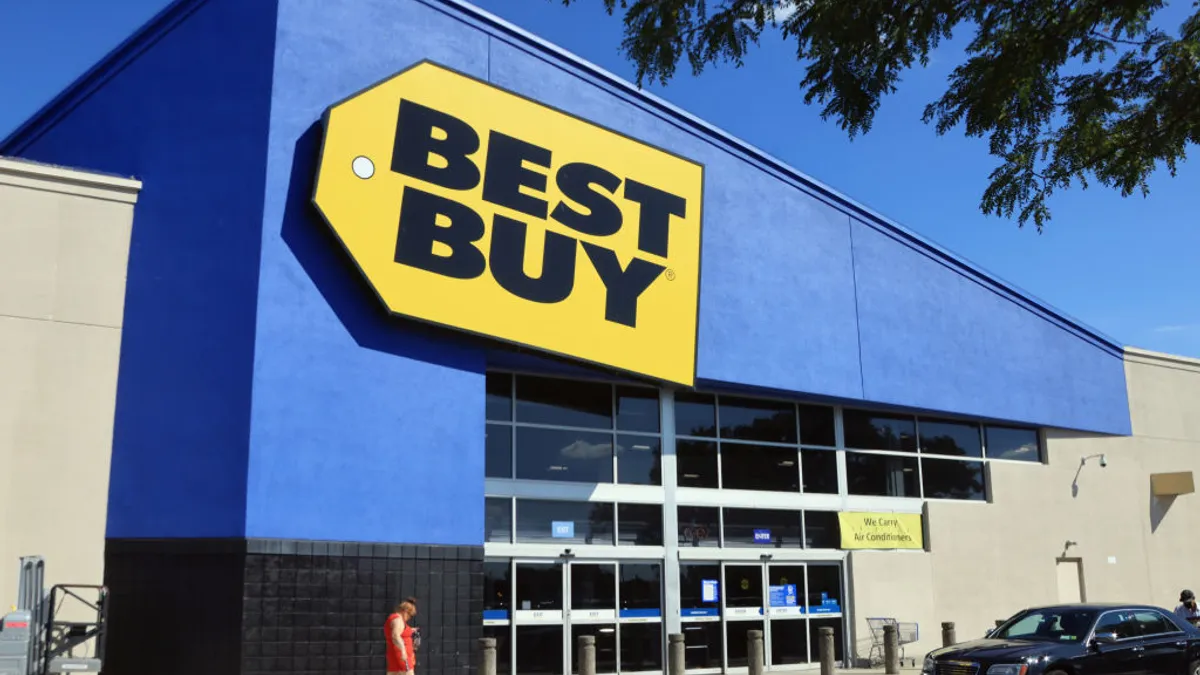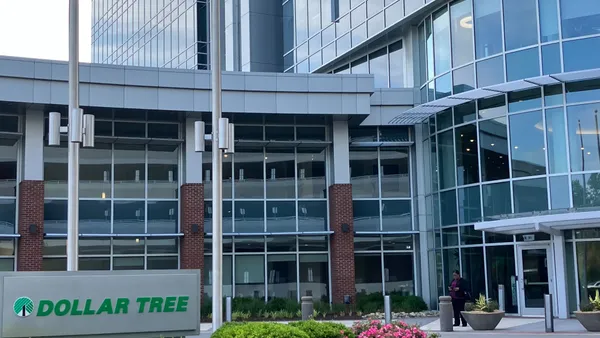Dive Brief:
- Best Buy expects prices to increase for U.S. consumers if tariff hikes are implemented under President-elect Donald Trump, according to a Q3 earnings call.
- The electronics retailer will bring some products in ahead of any potential tariffs, and it is also planning out its vendor and SKU assortments and promotional and pricing strategies, Best Buy CEO Corie Barry told analysts.
- “Typically, in history, this ends up being some kind of costs that are shared,” Barry said. “To some extent, the vendors have some, to some extent Best Buy but, of course, we see that the customer ends up bearing some of the cost of tariffs, and we've seen this before.”
Dive Insight:
Best Buy and other similar retailers may be particularly vulnerable to Trump’s proposed tariffs since “there's very little in the consumer electronics space that is not imported,” Barry said.
The company is the importer of record on only 2% to 3% of its products, according to the CEO, who noted most of the production of goods it controls has been moved out of China. Best Buy reported 60% of its costs of goods sold came from China in Q3.
New tariffs could also impact Best Buy’s sourcing from Mexico, a country which accounts for its second-highest total of imports after China.
Last week, Trump said he plans to levy a 25% tariff on imports from Mexico and Canada on his first day in office. He also imposed a 10% tariff on goods from China.
The complexity of Best Buy’s supply chain creates additional hurdles for the retailer, according to Barry, as its reliance on fewer direct imports means it has direct control of very few of its supply chains.
“I think at the end of the day, everybody in the industry believes diversification is a very good thing, but it is not easy,” Barry said.
Many other retailers are bracing for Trump’s proposed tariff hikes. For example, Williams-Sonoma said it is prepared to reduce exports to China, while TJX said tariffs would create a surplus of inventory for the retailer to acquire goods at advantageous prices.















